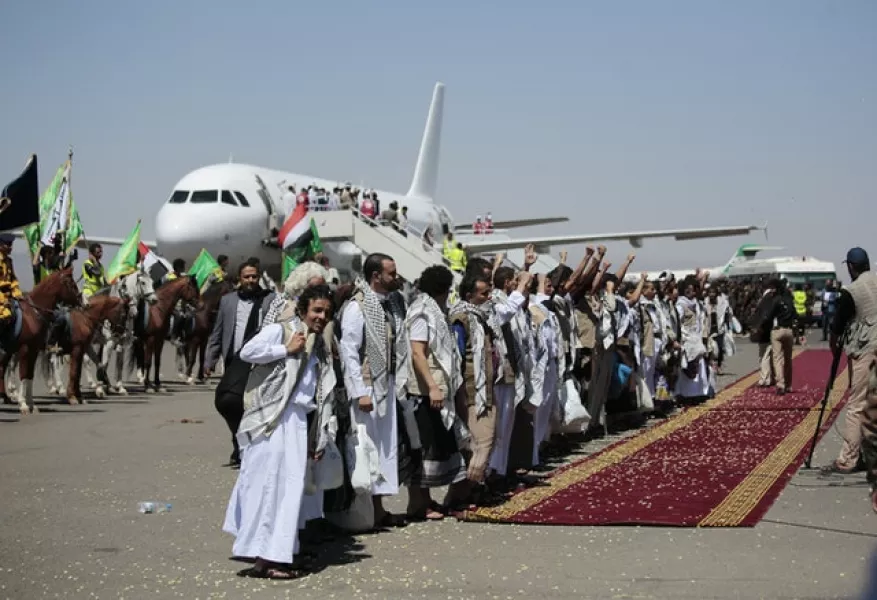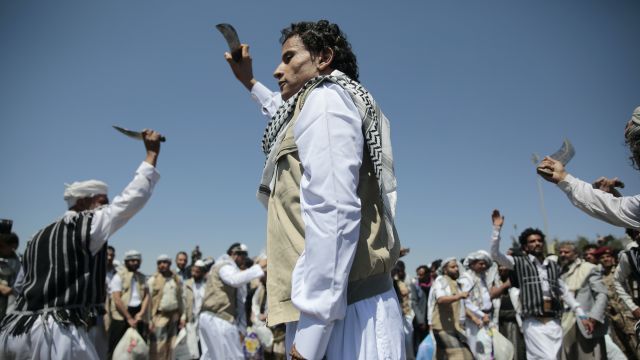This week’s prisoner release, the largest-ever in the war, marks a breakthrough in the implementation of a long-awaited deal between Yemen’s Iran-backed Houthi rebels and a Saudi-led military coalition supporting the country’s internationally recognised government.
International pressure has been building on the parties to end the war, which has killed thousands of civilians and triggered the world’s worst humanitarian crisis.
“We’re very happy this operation has concluded with success, regardless of how challenging it was to put it together,” said Yara Khawaja, a spokeswoman for the International Committee of the Red Cross in Yemen, which has overseen the swap.
She expressed hope it would help the warring sides overcome mistrust and restart more substantive negotiations “to end the suffering of millions of Yemenis”.

On Friday, several planes ferrying a total of 352 freed prisoners from both sides landed in Sanaa, Yemen’s rebel-held capital, and the southern port city of Aden, the seat of the internationally recognised government, according to the Red Cross.
An unprecedented 1,056 freed detainees returned home in the two-day swap, including hundreds released on Thursday.
Abdul Raqib al-Omari, director of Aden’s airport, confirmed that two planes touched down in the city a few hours apart, bringing the total number of prisoners returned to the Yemeni government on Friday to 152.
The first of those who arrived in Aden on Friday had been captured in fierce battles along Yemen’s western coastline, in the strategic port city of Hodeidah, according to officials in the city’s prisoner reception committee.
The day’s second transfer involved an undisclosed number of civilians who had been arrested at checkpoints or kidnapped from homes of relatives in the rebel-held capital during the war, they added.
Among those freed and flown to Aden on Friday was Eid Allah al-Kouli, a prominent Yemeni intellectual and author who was captured by the Houthis in Hodeidah before being imprisoned in the capital for five years, according to Ahmed Naji, a leader of Yemen’s writers’ union.

Mr Naji described Mr al-Kouli as a prisoner of conscience, targeted for his criticism of Houthi authorities.
The devastating conflict erupted in 2014, when the Houthis seized the capital, Sanaa, and much of the country’s north.
That prompted a US-backed Arab military coalition to intervene months later in a bid to restore the government of Yemeni President Abed Rabu Mansour Hadi to power.
In Sanaa, the Houthi-run al-Masirah TV showed the newly freed rebels, clad in traditional white robes, stepping off the plane onto a long red carpet, where they were greeted by crowds of officials, aid workers and relatives as trumpets blared and cries of “God is great!” rang out.
They prostrated themselves on the floor, kissing the carpet.
Ahmed Hamed, a Houthi leader, promised cash bonuses to all freed prisoners and said authorities would help all unmarried men cover their wedding expenses.







